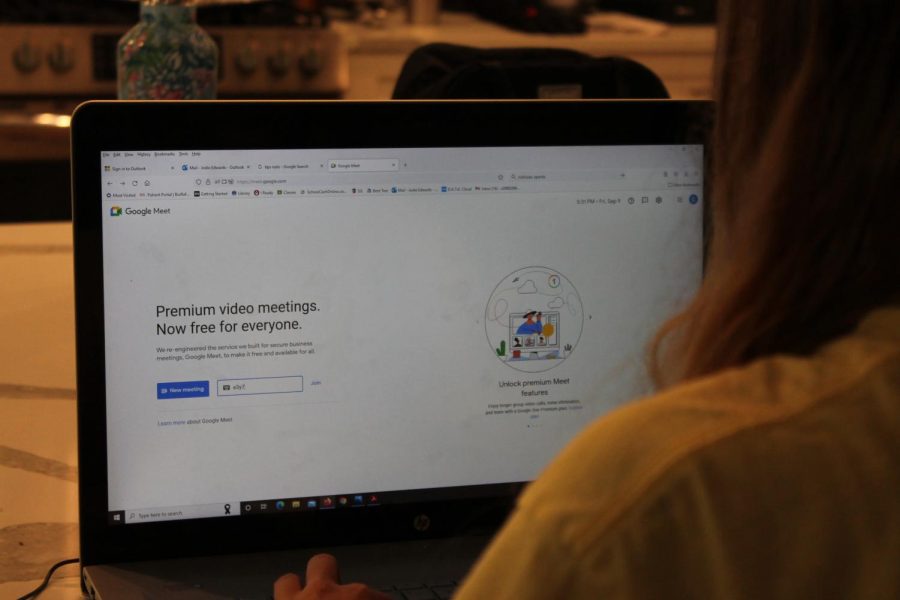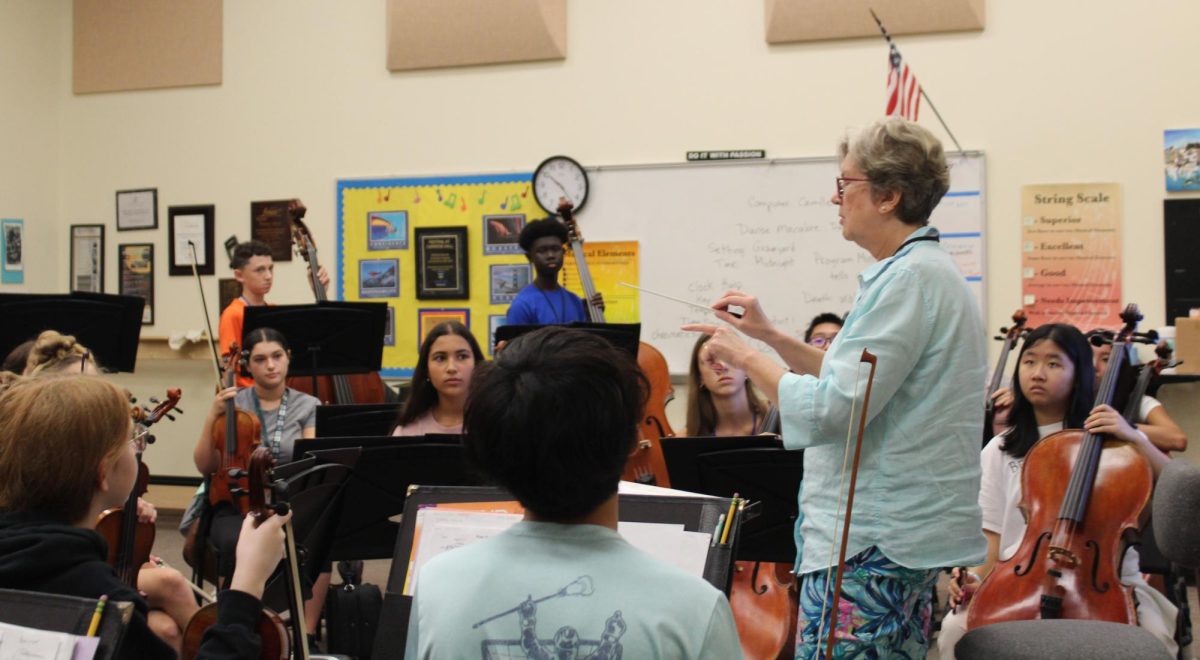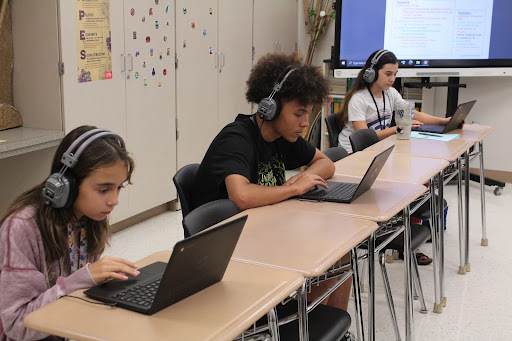Classwork, homework and studying for a subject can be tiresome, yet some of the stress seems to be relieved when listening to music. Music makes certain things better in the minds of students. Yet, Florida law prohibits students from using wireless devices during the school day – even if that’s to listen to music.
Students should be able to listen to their music of choice during the school day because of the benefits it can offer.
“Bak follows the state of Florida statute: Florida Statute 1006.07 (2)(f), says a student may not use wireless communications device during instructional time, except when expressly directed by a teacher solely for educational purposes,” Misty Connelly, assistant principal said.
Although music helps you concentrate on your work, it can also help improve students’ academic understanding with certain topics.
“I think there are many benefits to music in education. Lyrics to songs provide opportunities to discuss English Language Arts topics like imagery,” Connelly said.
There are numerous educational advantages for students to be listening to music, but there are also physical advantages that music can bring.
Florida National University states “Similar to how a lullaby would calm you, listening to music can also help you relax by lowering your blood pressure, easing muscle tension and increasing your attention span.”
Music also helps students concentrate on the work their teacher assigns them. Many students love listening to music during their homework because it helps them finish their work faster.
“When we’re in silence, we don’t work as much. It gets boring and we get distracted, but when listening to music, you enjoy it, so you do your work faster,” Josephine Gentilin, a sixth-grade music major said.
Listening to music can help keep your mind focused on current tasks to be completed. This means that work can be completed efficiently, and students will not have as much left over for homework, resulting in better grades since students don’t forget to do certain assignments, and are more focused on their work.
“Sometimes it may be a distraction, but it will probably help more when you are doing homework,” Elyshaa Cotto, a seventh-grade vocal major said. “Not homework that you actually have to pay attention to all the time and have to work it out the whole way, but when you’re relaxed, I think it will be beneficial to listen to music.”
A few classes have homework that require attention, like Reading Plus or any other reading assignments. But others like math or any world language classes don’t require as much attention. Background music can help with finishing the work faster than you would normally in a quiet setting.
“I think this rule is important because it is the teachers responsibility to monitor and ensure that what happens in the classroom follows the approved curriculum and is appropriate,” Connelly said
It is important that music doesn’t give students the freedom to listen to whatever they want, without restriction, as it is not possible for a teacher to monitor what every student is listening to at the same time.
“Music is inherent to our school, here at Bak we dance to it, create it, read it or are simply inspired by it,” Connelly said, “The rule is not meant to deny music, but to ensure that any note carried through the classrooms and halls of Bak are positive ones.”



































